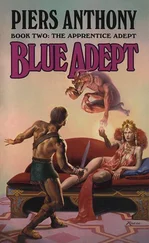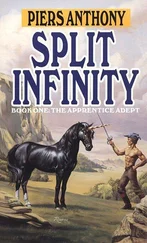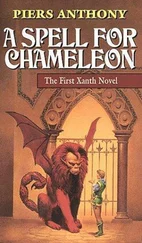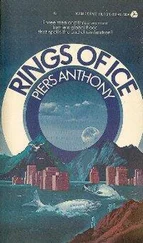Piers Anthony - Chthon
Здесь есть возможность читать онлайн «Piers Anthony - Chthon» весь текст электронной книги совершенно бесплатно (целиком полную версию без сокращений). В некоторых случаях можно слушать аудио, скачать через торрент в формате fb2 и присутствует краткое содержание. Город: 1967, Издательство: Ballantine, Жанр: Фантастика и фэнтези, на английском языке. Описание произведения, (предисловие) а так же отзывы посетителей доступны на портале библиотеки ЛибКат.
- Название:Chthon
- Автор:
- Издательство:Ballantine
- Жанр:
- Год:неизвестен
- Город:1967
- ISBN:нет данных
- Рейтинг книги:5 / 5. Голосов: 1
-
Избранное:Добавить в избранное
- Отзывы:
-
Ваша оценка:
- 100
- 1
- 2
- 3
- 4
- 5
Chthon: краткое содержание, описание и аннотация
Предлагаем к чтению аннотацию, описание, краткое содержание или предисловие (зависит от того, что написал сам автор книги «Chthon»). Если вы не нашли необходимую информацию о книге — напишите в комментариях, мы постараемся отыскать её.
Nominated for the Hugo Award for Best Novel in 1968.
Chthon — читать онлайн бесплатно полную книгу (весь текст) целиком
Ниже представлен текст книги, разбитый по страницам. Система сохранения места последней прочитанной страницы, позволяет с удобством читать онлайн бесплатно книгу «Chthon», без необходимости каждый раз заново искать на чём Вы остановились. Поставьте закладку, и сможете в любой момент перейти на страницу, на которой закончили чтение.
Интервал:
Закладка:
At first the device was not recognized as anything more than a perpetual-motion machine. It was bald and corpulent and tended to run around in circles while emitting angry squeals. An inquiry to Professor Feetle brought a furious suit for character assassination. Tested in space, it accelerated from an initial impetus of something less than an inch per second to something less than a foot per second in the course of an hour. During the second hour it attained a velocity several times as great. Eventually it caromed with such vigor that only instruments could track it. Finally it disappeared: although it had never left its self-determined orbit, it was gone.
Almost gone: the instruments picked up strange trace radiation—Cherenkov rays, the wake left by an impulse that exceeds the speed of light through a given medium. In this case the medium was a virtually perfect vacuum.
Professor Feetle withdrew his suit and took an active interest in his creation. But after that, the legend continued less benignly, censorship cast its mantle over the proceedings. It was rumored that the § device, once activated, drew its power from some unknown source—some power limitless in nature; that ships were constructed around large § devices and sent into some limbo that light itself was too coarse to penetrate; that not all of these ships returned; that there were malignant ghosts in far space, or nonspace.
Out of all this emerged the standard § ship; a full-sized vessel with a crew of thousands and a drive that could take it anywhere. Such a ship was the Jocasta ; her velocity was governed by logarithmic ratio. The number of hours in which she accelerated could be taken as the exponent of that power of 10 required to express her speed in miles per hour. Thus when the ship’s § clock registered 2, it meant that the drive had been functioning for two hours and that the speed of the ship relative to her starting point was 10 2, or one hundred miles per hour.
Oh, yes, Aton thought, as his capsule banked and spun, the § ships started slowly. But 8.83 on the ship’s clock was faster than the speed of light, 186,000 miles per second. Thirteen on the clock represented a full light-year per hour, and 16 was the signal to begin deceleration, since the drive could not be disengaged while any number showed on the clock and higher speed would fling the ship out of the galaxy.
A day and a half, objective Earth time, could take such a ship anywhere in the galaxy.
The capsule slowed, bringing Aton’s mind back to practical matters. It pushed through the seal, re-entering normal pressure. His journey, whether of rods or of lightyears, was over.
Five
Captain Moyne was waiting impatiently for him. He had never met her before in person, but it was not possible to mistake her. She was a handsome woman of indeterminate age, sleek and severe in the merchant service uniform. Her lips were almost colorless; her hair was bound in a tight skullcap and hidden under her helmet. Her face showed no trace of the ravage of twenty-four years in space. She was cordially disliked by the crew: a dislike she cultivated assiduously.
Why was she alone? An emergency should have the officers of the ship Socking impotently about her. And what was she doing in an obscure cargo hold?
“Five,” she said without preamble. “Seven’s refrigerant has broken down. We have thirty minutes, no more.”
Aton followed her to the hold. “Captain, I think you ordered the wrong man. I’m a machinist.”
She broke open a locker with practiced competence and removed a set of space suits. “I have the right man.”
“Look, I can’t fix a cooling system with press and die—”
The Captain whirled and caught his shirt with a slender hand. She yanked the fastenings open, reached inside, flipped out a thin booklet hidden in an inside pocket. “Is this not an illegal copy of the ship’s lay roster?” she asked.
She had him. Prosecution on that score would net him two years in prison and a lifetime proscription against space employment. The lay roster of a merchant ship was a classified document.
“You’re the captain, Captain,” he said.
She flung a suit at him. “Put this on.”
He hesitated. His heavy coveralls would not fit inside the light suit.
The Captain caught his thought immediately. “Strip. We can’t spare the time for modesty.” Matching action to word, she stepped out of her own uniform, the scant underclothing revealing an astonishingly well-proportioned figure, and climbed efficiently into her space suit.
Aton followed, still uncertain what was to be required. She did not leave him long in doubt.
“Our margin may be twenty minutes, but we can’t take the chance. We’ve got to move this cargo in Seven over to Eight, where the cooling mechanism is functioning. We’ll work together as long as possible; then I’ll cover you with the hydrant. Don’t waste any time at all, but don’t shake up the caskets any more than necessary. Let’s get to work.”
“Cover me with the— what’s in that hold? ”
She picked up one of the boxes and marched out of the room. “Turlingian Aphids.”
The box in his hands quivered as her meaning sank in. The Taphids! The eaters of spaceships!
Captain Moyne explained the situation in snatches as they worked. “They’re insects, grubs. Considered a delicacy on a number of planets. Have to be shipped live, but the low temperature keeps them in hibernation. When it warms, they begin feeding. First their own casing, then the cargo. Then anything else, including the crew. Can’t stop them; they’ll bore through metal, in time. Have to keep them cold and quiet. Clock’s at 13 now. We can’t bail out.”
That was a considerable understatement. It was not physically possible to leave a ship traveling beyond the speed of light. The outside universe simply did not exist for it. Five hours deceleration could drop them into sublight—if the hunger of the Taphids could wait that long. And the economic and political consequences—
“Is this a legal cargo?”
“Don’t be naïve. Why do you think I sent for you?”
Why, indeed. The Captain, it appeared, was a ruthless businesswoman. Strictly speaking, no interstellar commerce could be considered illegal, since no planet could enforce its laws beyond its immediate sphere of influence and no jurisprudence existed formally on a larger scale. But a certain body of common law had grown up and gained steadily in power, and individual policies were similar enough to encourage travel and trade, particularly among those planets which took pride in reputation. Sector law and the sector police force existed in name only; the idea of such power alarmed the fiercely independent colonies far more than that of criminal behavior.
But violation of the common-law code was apt to blacklist the offender on many prosperous worlds. No merchant ship could afford that. The Captain had reason for secrecy.
Half the caskets were moved without event. Then it began. The box Aton was carrying bulged. Pinpricks speckled the surface, then nail holes. His heavy gloves transmitted unmistakable motion from within; then horny white maggots spewed out. The Taphid menace had awakened.
Aton stared at the sandpaper-surfaced arthropods for a perilous moment, then dropped the box. It burst open immediately and foamed with slimy bodies. The maggots sensed him unerringly and advanced across the floor in a white wave.
“Faceplate!” the Captain snapped behind him. He fastened it barely in time; a stream of freezing foam was already on the way. She had turned the hydrant on him. Now he understood the reason for the suits. The foam would have killed him in minutes if it had caught him without protection.
The creatures on the floor curled and subsided, reflexing into hibernation. But already the remaining caskets were writhing. “Hurry!” the Captain’s voice came in his earphone, over the sigh of the suit’s air circulation. “I can only cover one at a time.”
Читать дальшеИнтервал:
Закладка:
Похожие книги на «Chthon»
Представляем Вашему вниманию похожие книги на «Chthon» списком для выбора. Мы отобрали схожую по названию и смыслу литературу в надежде предоставить читателям больше вариантов отыскать новые, интересные, ещё непрочитанные произведения.
Обсуждение, отзывы о книге «Chthon» и просто собственные мнения читателей. Оставьте ваши комментарии, напишите, что Вы думаете о произведении, его смысле или главных героях. Укажите что конкретно понравилось, а что нет, и почему Вы так считаете.











